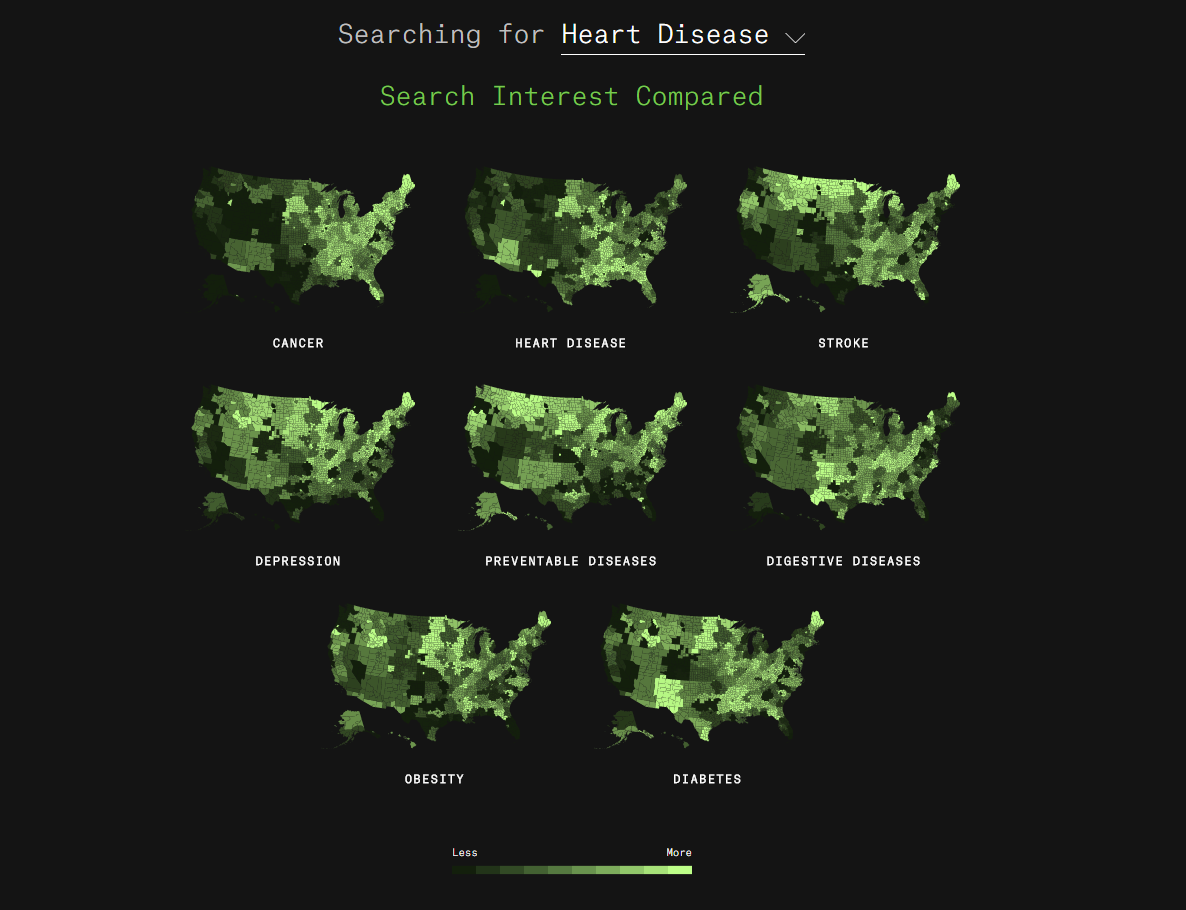
More data could help healthcare professionals and reporters tell better stories and discover new insights to combat the spread of these diseases. Source: Shutterstock
Google brings together healthcare and data for better journalism
LIKELY when you want to find out if that bump on your skin is just an everyday spot or the first stage of skin cancer, you’ll turn to Google to find out all about it. All that Googling has resulted in huge data sets about the health concerns of millions if not billions of people, and the Alphabet subsidiary is looking to put that information to good use.
Google’s News Lab said this week that they would be introducing a new healthcare-focused tool that can track the spread of diseases against the rate at which such terms are searched. The new tool, called “Searching for Health” will capitalize on search data to visualize the correlations between the spread of diseases such as cancer, heart disease, strokes and depression and geography.

Source: Searching for Health
Wherever searches are high and topics are trending, populations tend to experience high occurences of those diseases in real life. For instance, the Google searches of obesity has steadily risen over the last decade as rates rise all over the United States.
Such information, which was revealed on the Google News Lab site – a portal for journalists looking for data and information about Google-related issues – could potentially be a gamechanger for news reporting about healthcare. It could help journalists target areas to focus on depending on the disease, as well as lend greater context as to why these region experience high levels of certain diseases and what other factors contribute to the spread of these illnesses.
SEE ALSO: Healthtech has a long journey to the forefront of innovation
Furthermore, such data could be invaluable for policymakers looking for how to best allocate resources such as doctors, specialists, and research funds where they are most needed.
Whether or not the impact will actually be positive is one that has yet to be answered.
This isn’t the first time Google has looked into making health-related information publicly accessible. Last year, the search company updated its catalog of health symptoms with more detailed descriptions of diseases, as well as possible actions and treatments that should be taken. The company has also partnered with the nonprofit medical practice and research group, Mayo Clinic, to ensure that all its information is accurate.
READ MORE
- The criticality of endpoint management in cybersecurity and operations
- Ethical AI: The renewed importance of safeguarding data and customer privacy in Generative AI applications
- How Japan balances AI-driven opportunities with cybersecurity needs
- Deploying SASE: Benchmarking your approach
- Insurance everywhere all at once: the digital transformation of the APAC insurance industry
